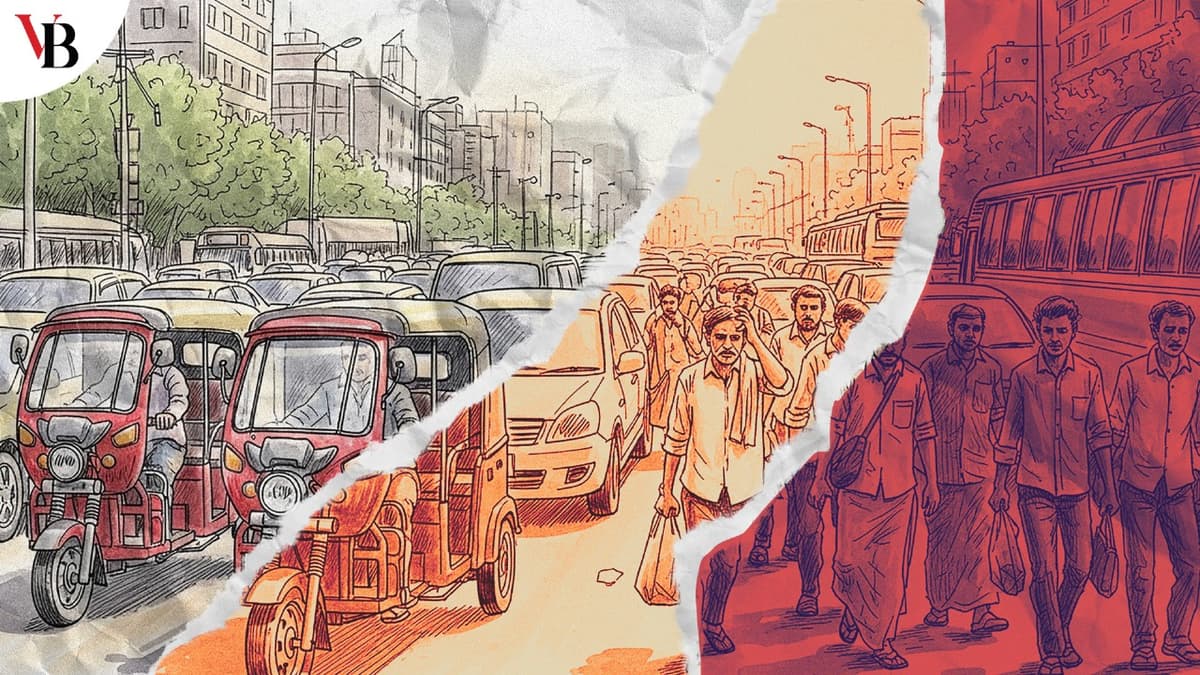Bangladesh Awami League

All public transport will operate tomorrow: BRTWF
Despite the nationwide lockdown called by the banned Awami League on Monday, all types of vehicles will operate, announced the Bangladesh Road Transport Workers Federation (BRTWF).

Is Jamaat's strength in changing colour
No third political force has emerged in Bangladesh after the Awami League and BNP. The Jatiya Party has effectively acted as the Awami League’s B team. Since the July uprising, there have been murmurs in the public sphere that Jamaat-e-Islami might form the next government. The results of student union elections at several public universities appear to hint at that possibility.

‘Insulted’ President’s letter to foreign adviser and some constitutional questions
When controversy erupted over the removal of President Md Shahabuddin’s portrait from Bangladesh’s foreign missions, many wondered whether the President was being removed or was planning to step down himself.

Stopping movement of illegal battery-operated vehicles urgent in capital
The streets of the capital Dhaka and across the country are now overrun with battery-operated rickshaws and easybikes. Yet the government has failed to remove these illegal and expired vehicles from the roads. Although in 2021 the High Court ordered a ban on 4 million battery-operated vehicles, and the interim government also took initiatives to enforce that ruling, these vehicles continue to operate in the city’s lanes and even on major roads, in violation of the court order. As a result, accidents and fatalities occur frequently, which is alarming for the country.

Corruption, extortion part of political culture
Finance Adviser Dr Salehuddin Ahmed has spoken an unvarnished truth about extortion: the level of extortion and illegal levies has increased since 5 August 2024, and stopping extortion, bribery and corruption requires political commitment. Because an extortionist is not just an extortionist—he is also a political player. I had the opportunity to work directly with him when he was the Governor of Bangladesh Bank. Being a man of simple habits, he is free from greed. A CSP officer from the Pakistan era, he is also competent. Upon taking office as Finance Adviser, he said that the state of the economy was not as bad as people claimed. Yet, once in power, the new government’s political gimmick was to publish a white paper on the corruption of the previous one.

No hope for country’s progress without improving education
Whichever government comes to power in Bangladesh, each promises a wave of development. During the previous Awami League government, we witnessed many such waves. There was some infrastructural development, but nothing was done in the sector that forms the foundation of nation-building—education. The current interim government has also failed in this area. Several commissions were formed for state reform, but not a single education commission. Ahead of the upcoming 13th National Parliamentary Election, the political parties have already begun their campaigns. The major parties are making big promises—what they will do if they come to power—but hardly anyone is talking about education. This clearly shows that all our governments and politicians have the same attitude towards education—they are blind to it.

Tarique Rahman’s interview and future of BNP politics
The most discussed event in Bangladesh’s recent politics is the long interview given by BNP’s acting chairman Tarique Rahman to BBC Bangla. After seventeen long years in exile, this interview is not merely a message of his personal return; rather, it also carries hints of a possible new equation in Bangladesh’s future politics. As one of the main contenders for power, the BNP has long suffered from a crisis of leadership, internal divisions, corruption allegations, and failure to wage an effective movement. In such a context, this public political statement from the party’s top leader has sparked new debate—some see it as the beginning of BNP’s resurgence, while others consider it still an undefined promise.

Does Shakib have the right to play for his country
Can the most successful cricketer in our country’s history, Shakib Al Hasan, play again wearing the national jersey? Does he still have the right to represent his beloved country? This remains one of the most debated questions in today’s sports arena, yet we do not have a clear answer at all.

Expatriates struggling to live amid unhealthy political culture
After independence, the people of any country need to learn patriotism, civic responsibility, human duty, self-reliance and the use of conscience. But in Bangladesh we were taught politics. Where all those words are almost absent. And because they are absent, we cannot escape partisan political activities even abroad. Not only us, but our country too is being tarnished. Even while living in highly developed countries such as London and America, our overly patriotic politicians want to preserve or have preserved the unhealthy domestic political culture instead of practising advanced politics. This causes me deep pain. What more can be said about the country’s unhealthy politics. We all have some experience of this sick politics. Therefore, my advice to our over-enthusiastic and patriotic expatriate politicians would be that it is good to engage in politics, but let it be above party politics and in the interest of the country and the nation.

No unity in reforming state, but absolute unity in grabbing rivers!
From childhood we have read in textbooks that Bangladesh is a riverine country. According to the draft list of rivers published by the Ministry of Water Resources titled “List of Rivers in Bangladesh – 2025”, there are currently 1,294 rivers in the country. However, as many rivers dry up in the winter, it is difficult to determine the exact number. Research by the Bangladesh Water Development Board (BWDB) suggests that at least 400–500 rivers remain active or flowing throughout the year.

